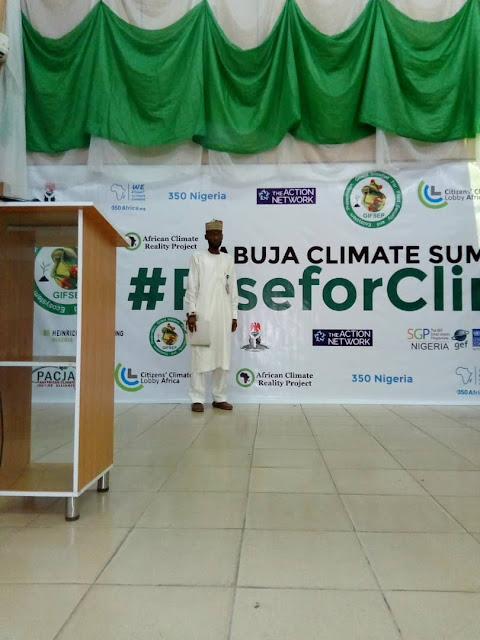Why Nigerian Youths must think beyond party politics.
By
Shiek AbdulAziz Ibn Baaz
3/12/2018
The idea of Nigerian youths in politics and governance has been advanced by several youths and youth groups in recent times. In 2014, some youths where led by young Nigerian professionals under the banner of Rethink Nigeria to present a document on this issue to the then National Conference.
The document made a case for youth inclusion in politics and governance. The argument we made back then, remains the same today. The idea of youth as leaders of tomorrow has reduced a demographic majority to a political minority. What this means is that while the youths control the majority of votes cast during elections, they end up controlling nothing after politicians win elections which this has something to do with the current ideology we have of party politics not minding weather the selected candidate is competent or not
A close look at the history of Nigeria shows how much the youth have featured prominently in political leadership and governance. But in recent times, the story is not exactly the same.
Shehu Shagari became a Federal Legislator at the age of 30 and a Minister at the age of 35. M.T. Mbu became a Minister at the age of 25 and Nigeria’s High Commissioner to the United Kingdom at the age of 26. Richard Akinjide became Minister of Education at the age of 32. Maitama Sule became Oil Minister at the age of 29. Audu Ogbeh was a Minister at the age of 35. He is still serving today as a minister. And the list goes on.
In contrast, today’s reality is a polity where Nigerian youths are used as election consultants, social media battalions, and political thugs. Many have blamed the new trend on a conspiracy of the elite class who just cannot stand the idea of vacating the scene for the younger generation creating a system that makes it impossible for young people to emerge and succeed in politics and governance. While this perspective is not entirely incorrect, there are more than enough premises to validate the argument that Nigerian youths are their biggest problem.
Greed, selfish ambition, lack of capacity and “over-competition” have conspired to weaken the ability of Nigerian youths to collaborate effectively as a united front that advances the well-being of young Nigerians.
Let’s look at some of the challenges that have constrained the Nigerian youth to the fringes of political leadership and governance and why nobody really takes them seriously.
First, selfishness. The idea that you must have everything for yourself alone and others can go to hell is a predominant characteristic of young people today they think they want to garner their support to anyone not minding he can deliver or not. You
Then you have the integrity challenge. Young people cannot expect to be trusted with leadership if they insult politicians in the social media one moment and the next moment approach these same politicians cap in hand.
The third is the mentality of every man for himself; the idea that you must demonize and destroy other youths as long as it guarantees you a spot at the top.
Lack of capacity is another major issue. The urge by youths to arrive quickly at the top without first subjecting themselves to building capacity going through process; mentorship, followership, and apprenticeship. Today, many young people want to own a company and lead an organization, even when the capacity for such leadership is lacking.
We must not forget poverty. Many youths are constrained by sheer economic pressure and find themselves ready to do anything for survival.
Competition in place of healthy collaborations has turned many young people into rat race runners who feel compelled to prove a point that they are the best at what and end up not seeing any good in others.
A recently disturbing trend is the rising wave of intolerance to dissenting viewpoints and ideologies. Come to the social media and see what young people are doing to themselves in the name of politics and the superiority contest to establish who holds the best opinion.
you will discover that what most young voters are able to achieve on election day is to validate the options presented to the electorate by political parties. What this means is that the voter is not really the one who wields political power but the party people who decide the candidates we all vote for on election day. The far-reaching implication of this is that when party A and party B give us bad candidates, whichever candidate the majority decides ends up being a bad leader anyway.
We must join hands to eradicate party politics and support better candidates irrespective of their political party



Comments
Post a Comment